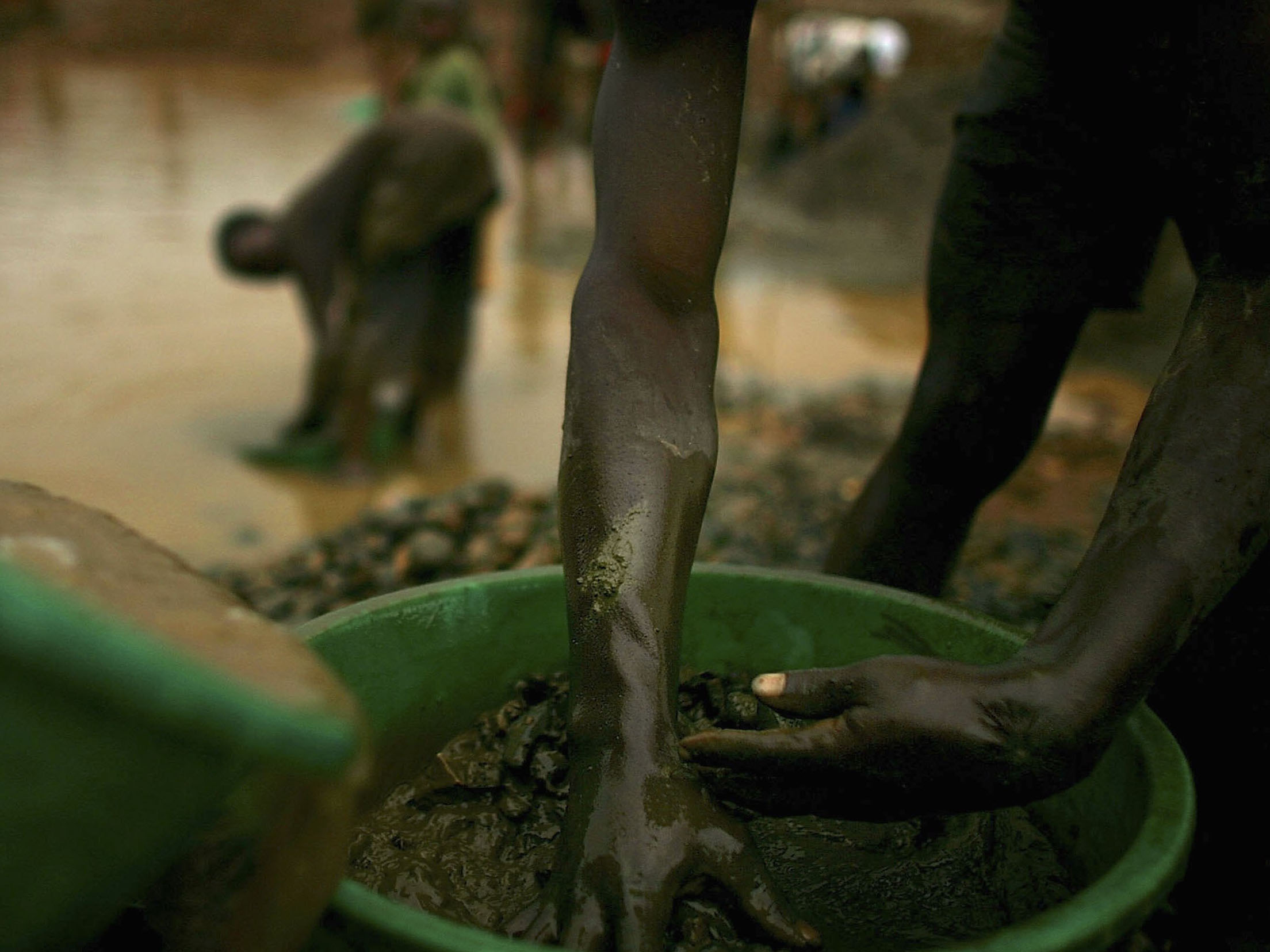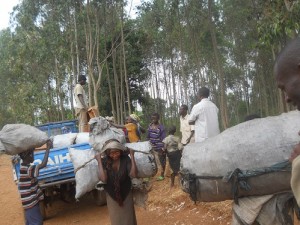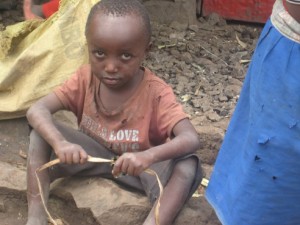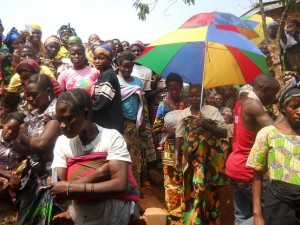Peace and Conflict Resolution from the Democratic Republic of Congo
TransConflict is pleased to showcase the work of Peace and Conflict Resolution from the Democratic Republic of Congo, a member of the Global Coalition for Conflict Transformation.
Suggested Reading |
Conflict Background |
GCCT |
Blessed and cursed with enormous mineral wealth, the Democratic Republic of Congo has experienced a long and brutal civil war that has left over four million people dead and forced some two and a half million to flee their homes.
As Kirthi Jayakumar writes:
“the persistent fighting in the Congo is easily among the worst and most lethal conflicts since the Second World War. The International Committee of the Red Cross has put a number on the figure – noting that as many as 5.4 million people have died in the conflict. A cursory glance at the trajectory of DR Congo’s political history reveals that land, language, ethnicity, migration, access to natural resources and national security are the most prominent of a host of factors that have helped protract the conflict. In the chaotic aftermath of the Rwandan civil war, refugees fled to the neighbouring Democratic Republic of Congo (formerly Zaire). Some Interahamwe – a militia partially responsible for the Rwandan genocide – crossed the border to avoid prosecution for their crimes against humanity.”
Photography courtesy of Peace and Conflict Resolution
Peace and Conflict Resolution was founded in Bukavu, South-Kivu – in the badly-affected, resource rich, eastern part of the Democratic Republic of Congo – by Pastor Samuel Muderhwa and his wife Faida in 2004 – both trained mediators – in order to “establish a society where people and communities are empowered with the skills to overcome conflict and take charge of their own destiny.” PCR aims to create peace and promote reconciliation, bring broken families back together, give vulnerable children hope, and empower women who have been affected by the war. As they note, “the people of Eastern D.R. Congo have passed through unimaginable chaos caused by the wars that have taken place in the region.” To this end, PCR’s activities focus on education – with the goal of nurturing and promoting responsible decision-making and problem solving skills.
Peace and Conflict Resolution remains committed to breaking the cycle of violence and poverty that continues to fuel conflict in local communities, whilst promoting a culture that nurtures peaceful relations at the grass-roots level. PCR believes in the importance of collaboration, and aims to build strong networks with partner organizations who share its vision of peacebuilding and providing humanitarian support. PCR insists that it is vital to equip future generations with the necessary leadership capacities and peacebuilding skills to end the cycle of violence.
Photography courtesy of Peace and Conflict Resolution
In order to fulfil these commitments, Peace and Conflict Resolution works to educate the community about understanding and resolving conflict; provides trauma counselling for victims of war; provides knowledge to communities about sanitation, hygiene and health-care; provides sponsorship for the education and health care of vulnerable children; offers entrepreneurial training; and builds networks with peace organizations both locally and internationally.
Photography courtesy of Peace and Conflict Resolution
Tackling sexual violence
Sexual violence remains one of the biggest challenges facing the Democratic Republic of Congo. As Kirthi Jayakumar notes:
“amidst death, displacement, disease and squalor, thousands of women were raped and mutilated in the DRC. Many can attest that the momentum to kill and maim is still in full swing despite a peace agreement signed in 2003. Sexual violence in Congo goes back to the beginnings of the conflict itself. The regular armed forces of all nations involved in the two wars, plus the numerous rebel groups, have widely used rape as a weapon of war. The Congolese regular army (FARDC) and the Congolese National Police Force (PNC) account for close to 20 percent of all sexual violence. The integration of former militia members into regular armed forces, with no mechanism for excluding human rights violators, has contributed to the problem. Those in positions of government authority are also among the perpetrators, and even UN peacekeepers have committed acts of sexual violence. As rape was adopted as the preferred weapon of control, so women have had to suffer the horrors of gang rapes, torture, sexual slavery, sexual abuse and harassment.”
Peace and Conflict Resolution – in conjunction with associates, Kim Haxton and Meaghan Farquahrson – have provided Trauma Counselling Training to local Congolese women. The “self-sustaining” training “is centered upon trauma counselling training for women and adds capacity building for future projects focused on community wellness, sustainability and self-sufficiency” and “will help local communities create better lives for the people in Bukavu”.
A host of challenges remain for the Democratic Republic of Congo. As PCR note, peacebuilders are doing a lot to train people on how to live peacefully, but because of bad leadership and selfishness of politicians it is difficult to achieve. Furthermore, local people continue to distrust the UN peacekeepers, MONUSCO. PCR remains committed to fostering strong peacebuilding leadership and providing support to war victims.
























RT @TransConflict: #Peace and #Conflict Resolution from the Democratic Republic of #Congo: @TransConflict is pleased to showcase… http://…
Pingback : The sixth GCCT newsletter | TransConflict
Peace and Conflict Resolution from the Democratic Republic of Congo – #DRC – TransConflict – http://t.co/d8Pb9MnGd8
RT @aheartforafrica: Peace and Conflict Resolution from the Democratic Republic of Congo – #DRC – TransConflict – http://t.co/d8Pb9MnGd8
Peace and Conflict Resolution from the Democratic Republic of Congo – TransConflict – http://t.co/jiQiOevOWB
http://t.co/NwJkocypYq #conflict #resolution #peace #help
RT @aheartforafrica: Peace and Conflict Resolution from the Democratic Republic of Congo – #DRC – TransConflict – http://t.co/d8Pb9MnGd8
RT @aheartforafrica: Peace and Conflict Resolution from the Democratic Republic of Congo – #DRC – TransConflict – http://t.co/d8Pb9MnGd8
RT @aheartforafrica: Peace and Conflict Resolution from the Democratic Republic of Congo – #DRC – TransConflict – http://t.co/d8Pb9MnGd8
Pingback : Peace and Conflict Resolution from the Democrat...
Good day,
There are much more hidden aspects of the DR Congo war of invasion by its poor neighbours with the help of the international complicity that organizations like Peace and Conflict Resolution based in Bukavu, South Kivu province might know but will not put in the public place. This might be linked to aspects related to the organization’s interests or other unknown motivations. And most of the organizations that have been involved in enhancing communities that have been affected by violence with different activities are doing a great deal of work. Unfortunately, while they might be willingly involved in the activities, they ignore the hidden motivations of the funding institutions that come into help to these organizations.
Why? Besides the different aspects of the political history (land, language, ethnicity, migration, access to natural resources and national security etc.), which the DR Congo has inherited from God, other rich provinces have not suffered such violence. The truth behind the recurrent destabilization of the Eastern DR Congo, however, must be linked to a well-known westerner plot existing since colonization to balkanize the DR Congo into small nations. The plot emanates from well-known nations among which: United States, United Kingdom, France, Belgium and other business corporates using surrogate nations as Rwanda, Uganda Burundi and other African nations. The balkanization plan has been supported by the United Nations with its 20 000 military and civil personnel for the last two decades without any peace results.
The plan has benefited the support of different peace deals that have nothing but hypocrisy to illegally revise the DR Congo borders that poor nations as Rwanda and Uganda envy to possess. Such complicity has been proven with the Peace, Security and Cooperation Framework for DRC and the region signed in Addis Ababa that can be accessed on the following link: http://www.peaceau.org/uploads/scanned-on-24022013-125543.pdf
It is a shame to the world that this document is different with the original one that was finalized by the same superpowers in complicity with the triad composed of Joseph Kanambe illegally-imposed head of the DR Congo state on one hand, Kagame and Museveni on the other and the altogether cohort of western nations quoted above to intrude foreign management from Rwanda and Uganda in the DR Congo. The document link that has been provided above has never been ratified by the DR Congo House of Commons making it totally an illegal document that does not exist.
The DR Congo nationals living in the United States who met in December 2013 with Feingold to enquire on the DR Congo plot of balkanization and request for answers for this Addis Ababa Peace deal signed by a cohort of African leaders failed to defend the existing of a ratified official document of the Peace, Security and Cooperation Framework for DRC and the region signed in Addis Ababa. This means that the Addis Ababa framework document is only a useless and non-existing document since the original document contains the balkanization plan and plot against the DR Congo that they are unable to produce in the public place.
We, originally Congolese at birth, will defend our RIGHTS, TERRITORY AND WEALTH to death.
By Albert D.
Conflict Analyst and Nationalist
Good day,
There are much more hidden aspects of the DR Congo war of invasion by its poor neighbours with the help of the international complicity that organizations like Peace and Conflict Resolution based in Bukavu, South Kivu province might know but will not put in the public place. This might be linked to aspects related to the organization’s interests or other unknown motivations. And most of the organizations that have been involved in enhancing communities that have been affected by violence with different activities are doing a great deal of work. Unfortunately, while they might be willingly involved in the activities, they ignore the hidden motivations of the funding institutions that come into help to these organizations.
Why? Besides the different aspects of the political history (land, language, ethnicity, migration, access to natural resources and national security etc.), which the DR Congo has inherited from God, other rich provinces have not suffered such violence. The truth behind the recurrent destabilization of the Eastern DR Congo, however, must be linked to a well-known westerner plot existing since colonization to balkanize the DR Congo into small nations. The plot emanates from well-known nations among which: United States, United Kingdom, France, Belgium and other business corporates using surrogate nations as Rwanda, Uganda Burundi and other African nations. The balkanization plan has been supported by the United Nations with its 20 000 military and civil personnel for the last two decades without any peace results.
The plan has benefited the support of different peace deals that have nothing but hypocrisy to illegally revise the DR Congo borders that poor nations as Rwanda and Uganda envy to possess. Such complicity has been proven with the Peace, Security and Cooperation Framework for DRC and the region signed in Addis Ababa that can be accessed on the following link: http://www.peaceau.org/uploads/scanned-on-24022013-125543.pdf It is a shame to the world that this document is different with the original one that was finalized by the same superpowers in complicity with the triad composed of Joseph Kanambe illegally-imposed head of the DR Congo state on one hand, Kagame and Museveni on the other and the altogether cohort of western nations quoted above to intrude foreign management from Rwanda and Uganda in the DR Congo. The document link that has been provided above has never been ratified by the DR Congo House of Commons making it totally an illegal document that does not exist.
The DR Congo nationals living in the United States who met in December 2013 with Feingold to enquire on the DR Congo plot of balkanization and request for answers for this Addis Ababa Peace deal signed by a cohort of African leaders failed to defend the existing of a ratified official document of the Peace, Security and Cooperation Framework for DRC and the region signed in Addis Ababa. This means that the Addis Ababa framework document is only a useless and non-existing document since the original document contains the balkanization plan and plot against the DR Congo that they are unable to produce in the public place.
We, originally Congolese at birth, will defend our RIGHTS, TERRITORY AND WEALTH to death.
By Albert D.
Conflict Analyst and Nationalist
Pingback : An Indigenous Garden in DCR | Embodied Awareness Blog